Kelly and Christy Layson uprooted their family, streamlined their possessions and pursued their faith more than 5,000 miles from home. Their efforts to share the Gospel had gone mostly according to plan until the events of a fateful November day in 2019 changed everything in an instant.
Kelly Layson in a few words summarized not only his personal mission statement but that of his wife, Christy, and their children, 10-year-old Mary and 16-year-old Michael: “Together as a family, we serve the Lord and the people of Moldova. This is what we do.”
Kelly and Christy always had a heart for missions, having gone on numerous short-term trips throughout their marriage. After a visit to Haiti in 2013, they began to sense that God was calling them to the mission field full-time. The call was not so much a voice they heard as it was a need they saw, first in the eyes of the Haitians and later in the Moldovans.
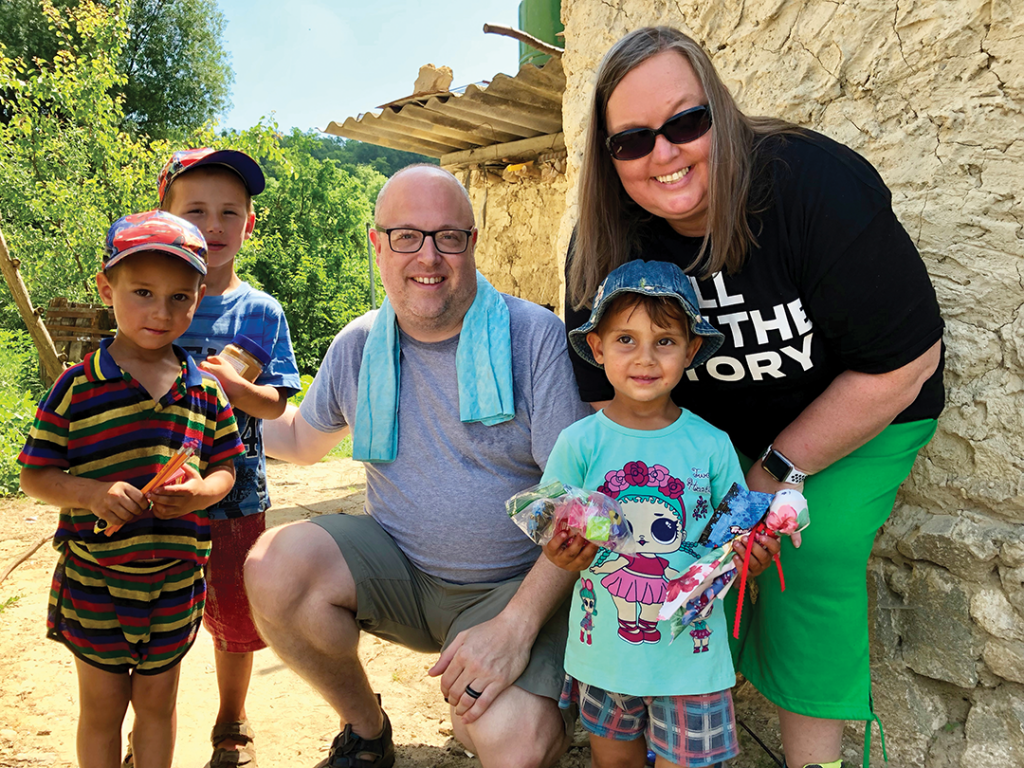
“They were missing something, wanting something,” Kelly said when asked about his experience in Haiti. “They were looking for somebody to give them hope, to tell them the Good News.” That realization gave rise to empathy and a growing compassion. “It could have been us looking for this hope,” he said. “Maybe the Lord put us here to tell them about Jesus.” However, after dangerous local conditions effectively closed the door to Haiti, they turned their attention elsewhere. Someone suggested they consider Moldova. “We had never even heard of it,” Christy said. Their interest piqued when they were told it was “the Haiti of Europe”—a reference to the extreme poverty that plagues both countries. The Laysons decided to travel to Moldova as missionaries. However, it was more of a “vision trip” for them, and their eyes were opened as they saw God working out timely details and revealing various ministry opportunities. “The Lord laid out everything,” Kelly said. “It was really, really special.”
Christy and Kelly realized something in their world had shifted the moment they arrived back in the States, as their plane touched down just after midnight in Washington, D.C. “We landed and both of us looked at each other with cold chills, and we said, ‘We’re not supposed to be here. This is not home for us right now,’” Kelly said. The Laysons continued to pray for confirmation of the call and regularly held family talks around a table, where the kids actively participated in the decision-making process. Eventually, a consensus was reached. “Nobody had negative reasons for why we shouldn’t move to Moldova,” Christy said. “There were only positives.”
“The Moldovans will give you the shirt off their backs to help you, but they don’t have a shirt to give you.”
Kelly Layson
After being accepted by Operation Mobilization, a Christian missionary organization based in Tyrone, the Laysons immediately began efforts to raise money for their mission to Moldova. Kelly and Christy left longstanding jobs and sold their house and cars. In just five months, they were fully funded. Michael and Mary, 10 and 4 years old at the time, made sacrifices of their own, as they left behind friends and possessions. For their flight to Moldova, each of them was allowed just one suitcase in which to carry their personal belongings: clothes, toys and books.
“They made some difficult choices,” Kelly said.
Upon arriving in the former Soviet republic, the Laysons joined a well-established OM ministry team and began the process of adjusting to a new culture and learning the national language: Romanian. “They also have Moldovan, which is not really a language, but it’s their made-up language, so they speak Russian, Romanian and Moldovan, all in one sentence,” Christy said with a laugh. The Laysons made an instant and enduring connection with the village of Panasesti and its pastor, Petru Castravet, whom Kelly credits with being an invaluable mentor. “You knew this was a man of God and that he was a believer in the Lord Almighty,” he said. The capital city of Chisinau is home to an estimated one million people, while another 1.5 million populate the roughly 1,600 villages scattered throughout the rest of the country—a total area one-third the size of Georgia. It is perhaps the poorest nation in Europe. Despite the lack of resources, the Laysons found the native people to be generous and hospitable to a fault.
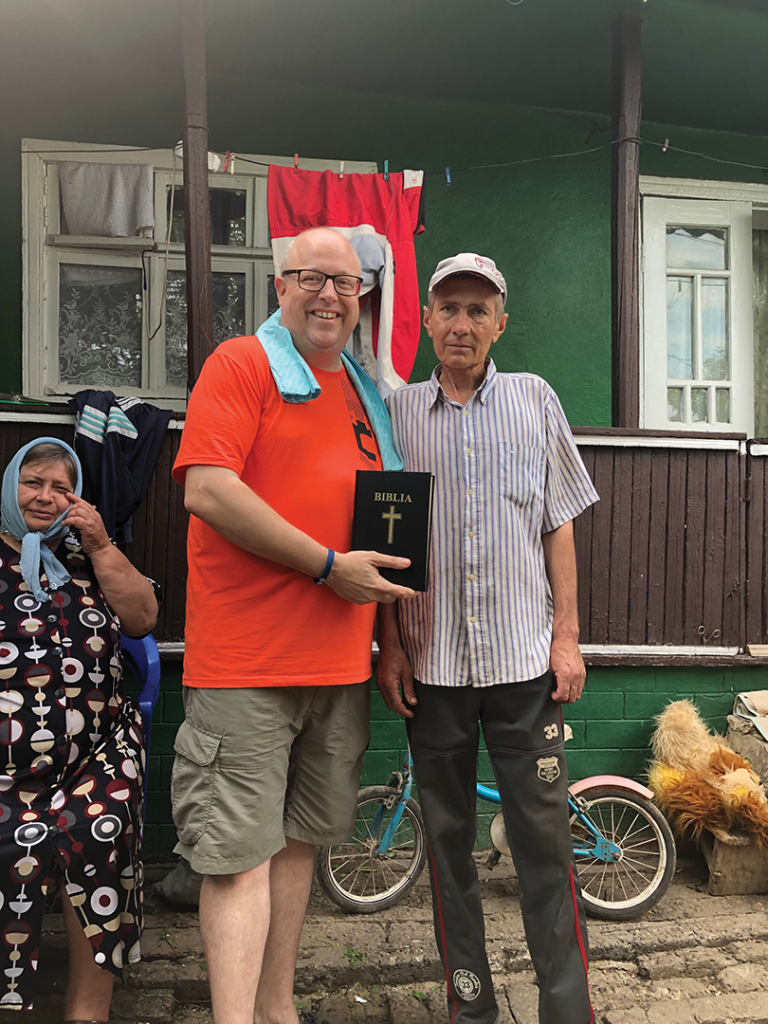
“The Moldovans will give you the shirt off their backs to help you,” Kelly said, “but they don’t have a shirt to give you.”
The effects of poverty in Moldova are both ubiquitous and profound. Many parents leave their families in order to find jobs in other countries such as Italy or Russia. Typically, Christy indicated, the father is the first to go, and, initially, he sends money back home for support. Often, after a little while, the money stops coming and the father is never heard from again. Then the mother may leave and, likewise, never return. The heartbreaking outcome? Children abandoned and left to survive on their own.
“The youngest I knew was a 9-year-old girl who was taking care of her little sister and a toddler,” Christy said. “This is common in the village.”
Sex trafficking of young Moldovan girls is also widespread. Many are lured away from home by the promise of a legitimate job in the city that would enable them to help provide vital food and firewood for their families through the harsh winter. The girls are then often taken out of the country under false pretenses and sold into the human trafficking industry. Other Moldovan girls become trapped in a life of prostitution with seemingly no way out. Christy vividly remembers a 15-year-old who shared her story at one of OM’s Vulnerable Girls camps. For two years, she had worked to pay for monthly medicine her younger brother needed to survive.
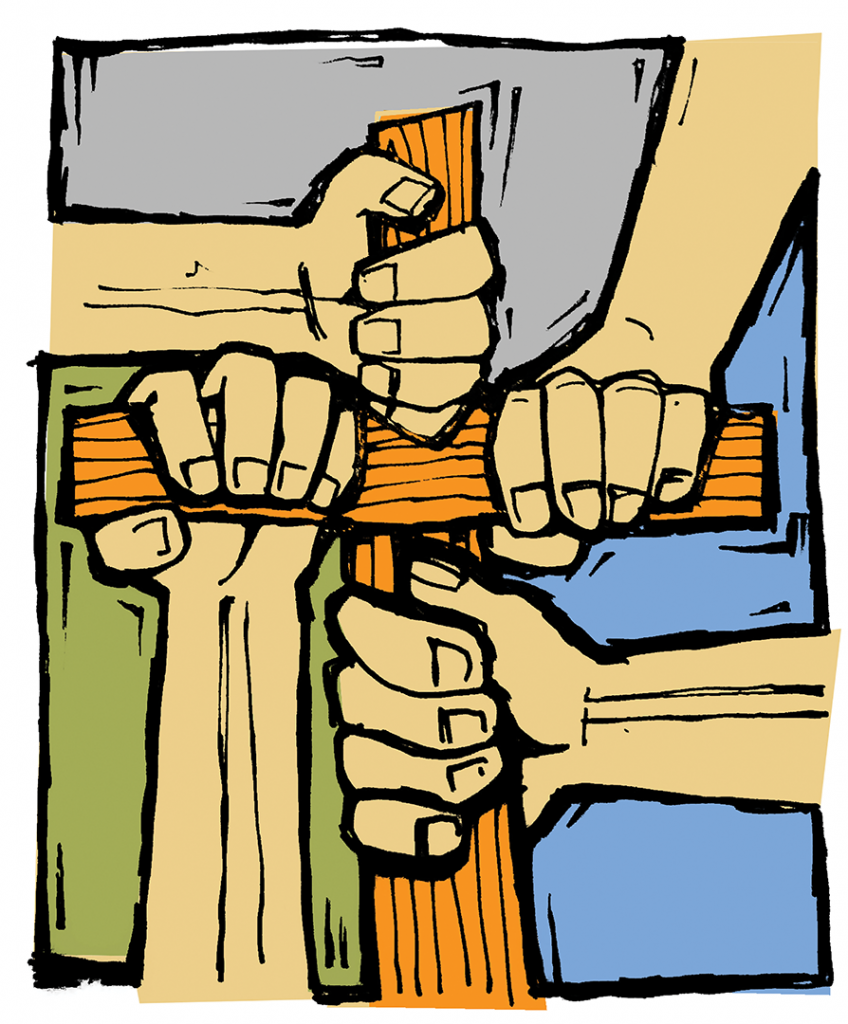
“Her mom would sell her for about $2.50,” Christy said. “She told us she feels it’s only right that she does this. She doesn’t want to be the reason her brother dies.”
Into these lives and situations, the Laysons and the OM ministry team have brought help and hope through a variety of ministries. Kelly’s job in financial development entailed generating funds through Moldovan donors for projects providing food, firewood, children’s programs, day and elderly centers, camp ministries and more. As often as possible, the Laysons went as a family into the villages to feed the needy and share the Gospel as “the hands and feet of Jesus.” Though they had experienced challenges and difficulties during their time in Moldova, they no longer felt like strangers in a foreign land. Even young Mary considered Moldova, not America, her home.
Then life changed again, quickly and dramatically, on Nov. 10, 2019. Christy, still recuperating from surgery two weeks earlier, awoke that morning to the sound of her kids’ voices. They were filled with trepidation: “Mom, there’s something wrong with Dad.” Concern grew.
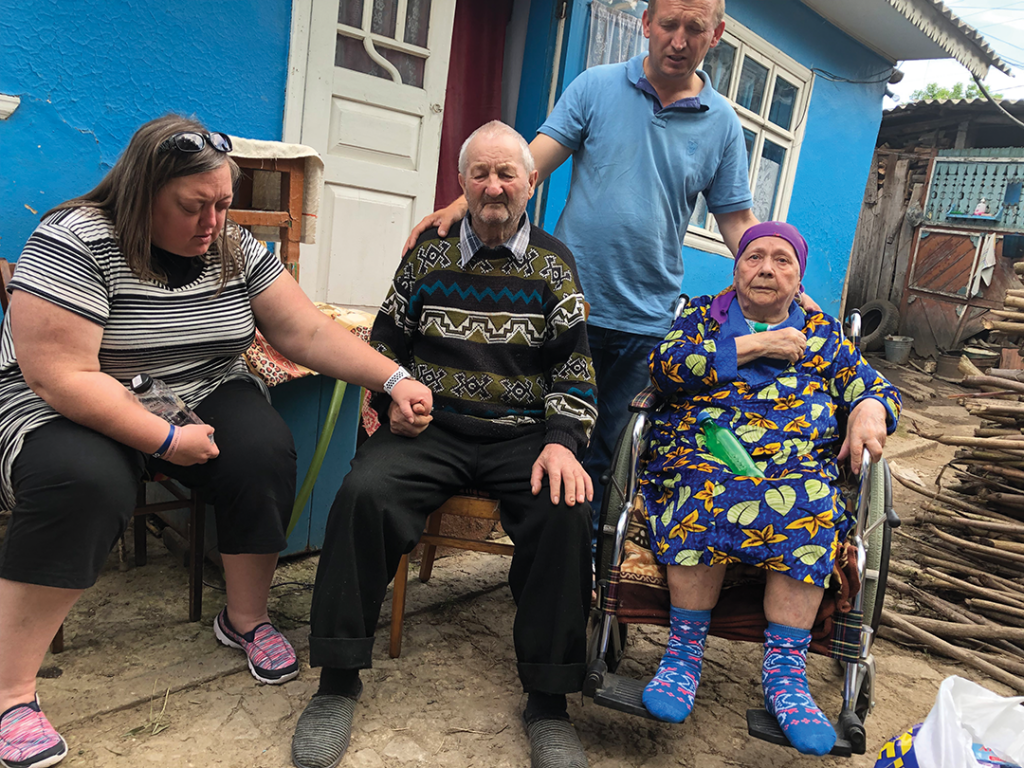
“I was acting weird,” Kelly said. He could speak, but his words carried frightening incoherence. “He just started talking about crazy stuff,” Christy said. When Kelly noticed he could not feel his right hand, his wife knew it was time to call for help. He had suffered a stroke. Over the next two weeks, Kelly was wheeled in and out of several antiquated hospitals, all ill-equipped to correctly diagnose or treat him.
“Moldova is like America was 40 or 50 years ago,” Christy said. “The national hospitals are really bad.”
Convinced that Kelly’s best chance for effective treatment would be found back in the States, Christy worked to get him released from the hospital and approved to fly. After a couple of extra cash payments required by the doctor and a call to the American embassy, Kelly was on a 13-hour flight to Atlanta. He was then rushed to Piedmont Rockdale Hospital in Conyers.
“By this time, 15 days had passed,” he said. “[The doctors] were really in disbelief at what had happened.”
After about a week in the hospital, Kelly was released to his parents, and several days later, Christy and the kids flew home, the family together again. Kelly spent three months undergoing speech and physical therapy. Today, a little more than a year after returning from Moldova, he continues to slowly improve from the lingering effects of the stroke and faithfully waits to see where God leads next.
“Our heart would be to go back to Moldova,” Kelly said, “but we know this is not really possible right now.” He admits the difficulties they face are real. “There are some things you can’t deny,” Kelly said while fighting back tears. “It’s because of God—and some days I don’t understand—but no matter what has happened, I’m still alive.” He was quick to recount how God continues to bless and provide for his family. “The Lord took care of us, so there’s something else,” he said. “We’re not finished.”
Through it all, the Laysons remain committed to the call. Kelly, who recently suffered a second albeit less-severe stroke, wears a bracelet that reads as follows: “Watch me live my life.” Christy explained the meaning behind the words. “Whether we’re here or in Moldova, we want people to see Jesus in us,” she said. “We want to live our lives so that they want to know what’s different about us so that we can tell them about Jesus and He can save them just like He saved us.”
Click here to read more stories by David Roten.

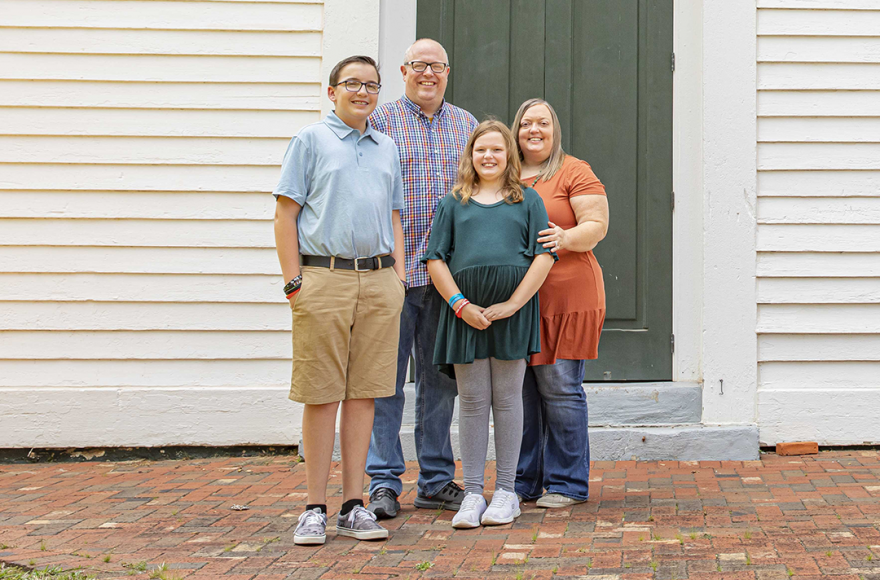
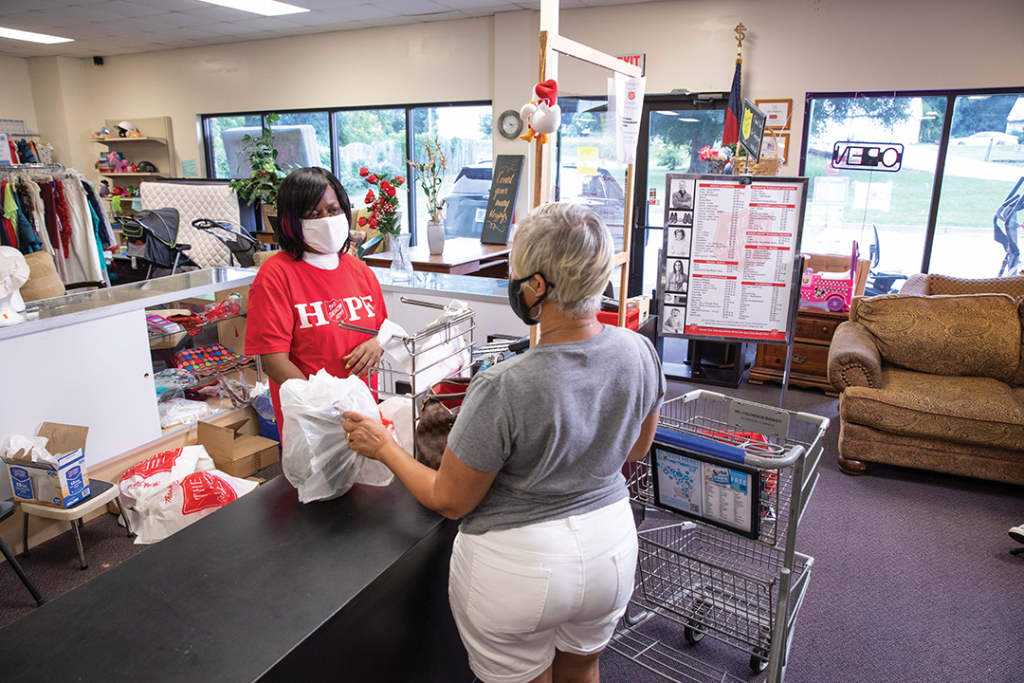
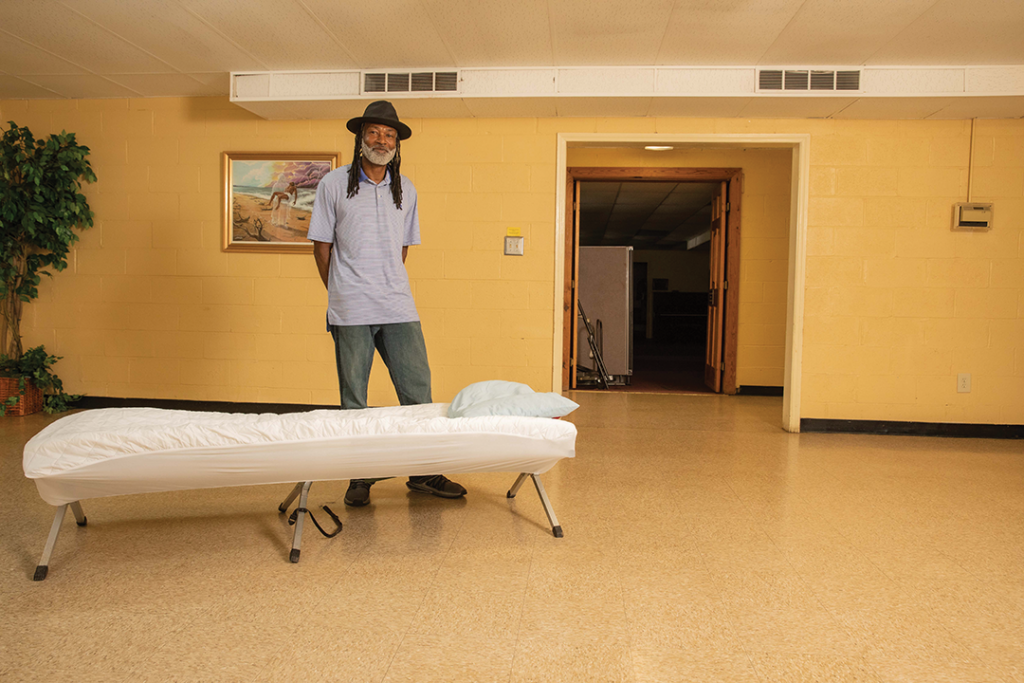
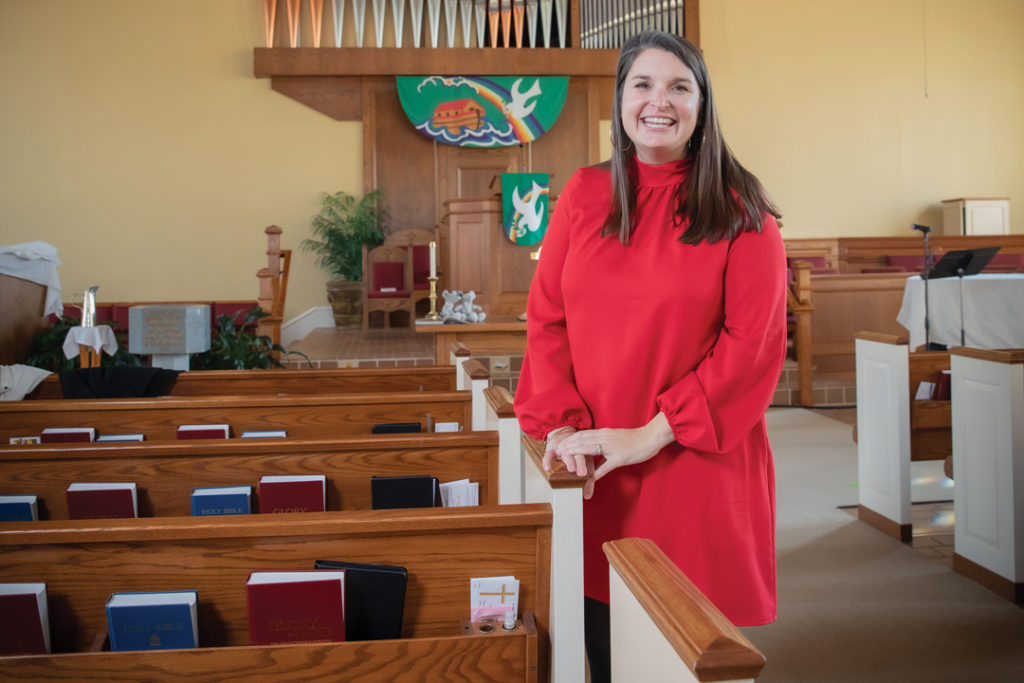
1 comment
Thank you both and your two children for doing your Godly work to help the less fortunate of God’s children. I will keep you four and all of God’s children in my prayers continually. May the force of God carry you on to do His work.